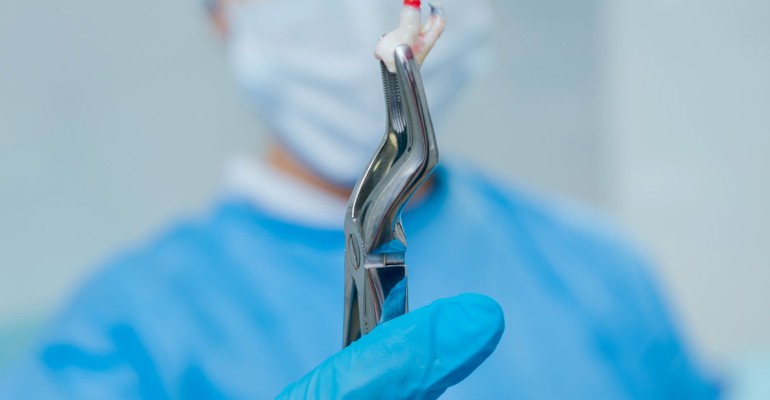
Tooth extraction and impacted tooth extraction are applications performed by specialist dentists. While tooth extraction is performed in case of tooth decay, impacted tooth extraction is a procedure applied at the age of 20.
Tooth extraction is the removal of the tooth from its socket in the bone in cases that cannot be treated. If the tooth has decayed, this procedure is usually applied. In case of decay, if root canal treatment cannot be applied to the tooth, it must be extracted.
Situations where tooth extraction should be performed are as follows:
• In case of fractures and bruises in the teeth, if root canal treatment is not possible, the teeth are extracted.
• When needed in orthodontic treatments
• In case of gum diseases, loss of tissues supporting the tooth
• In the case of an impacted tooth
Wisdom teeth are teeth that develop at the age of 17-26 and are problematic. An adult generally has 3 impacted teeth.
• Pain in teeth and gums
• Pain in the lymph nodes
• Gum sensitivity
• Pain in the ear and jaw
• Bad odor in the mouth
• Headache
• Pain during chewing
Wisdom teeth that are not impacted and fully erupted are extracted like a normal tooth extraction. However, if it is an impacted tooth, a surgical operation should be performed.
In the case of an impacted tooth, the tooth cannot come out because it cannot find enough space, and swelling and infection occur. In addition, these teeth need to be extracted by surgical procedures. Impacted teeth cannot be extracted with normal tooth extraction methods.
During the impacted tooth extraction, the palate of the person is surgically opened or an incision is made. Then, impacted teeth can be extracted from the incision.
Frequently Asked Questions About Tooth Extraction and Impacted Tooth Extraction
After tooth extraction, a feeling of pain occurs after the effect of the applied anesthesia wears off. There may be pain, bleeding, and swelling in the area after tooth extraction.
It is difficult to give an exact figure for the maximum number of teeth that can be extracted per day. The bone structure of the tooth, the general health status of the patient, and the root position of the tooth affect the number of teeth that can be extracted.
Fever is not a common complication after tooth extraction. Therefore, when complications such as fever and shivering are experienced, it is necessary to consult a specialist dentist.
Inflammation after a tooth extraction is one of the most common complications. The inflammation problem goes away after 2-3 days. If it does not pass, you should consult your dentist again.
The most common complications after wisdom tooth extraction are the development of trismus, prolonged anesthesia than expected, tooth fracture, damage to the jawbone and adjacent tissues.
Unless your dentist tells you otherwise, brushing should not be done on the first day. One day later, teeth should be brushed away from the extraction area.
If you want to have a tooth extraction, you can make an appointment by contacting our clinic. You can also get detailed information about tooth extraction prices when you contact us.
Free Consultation